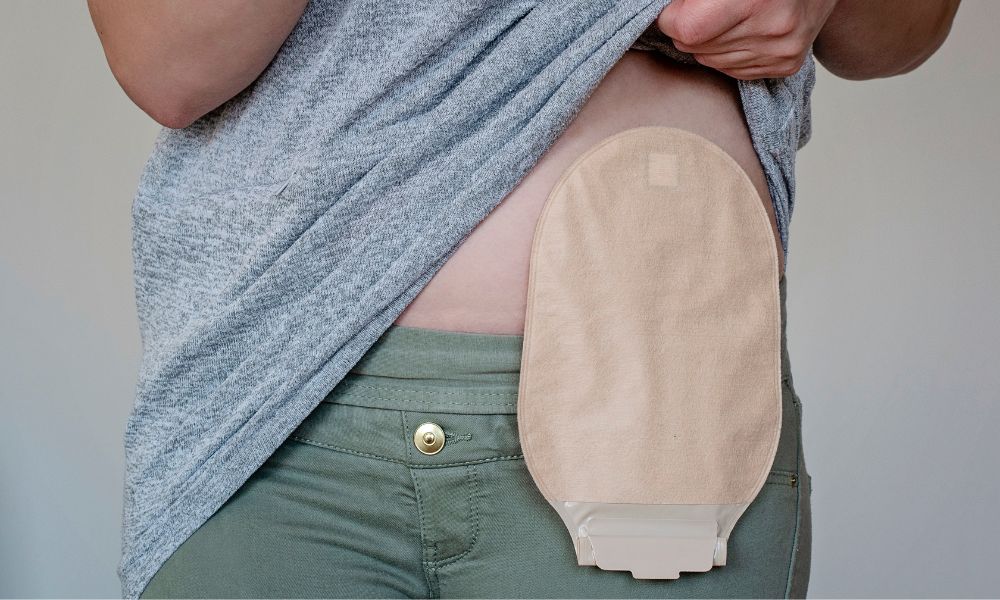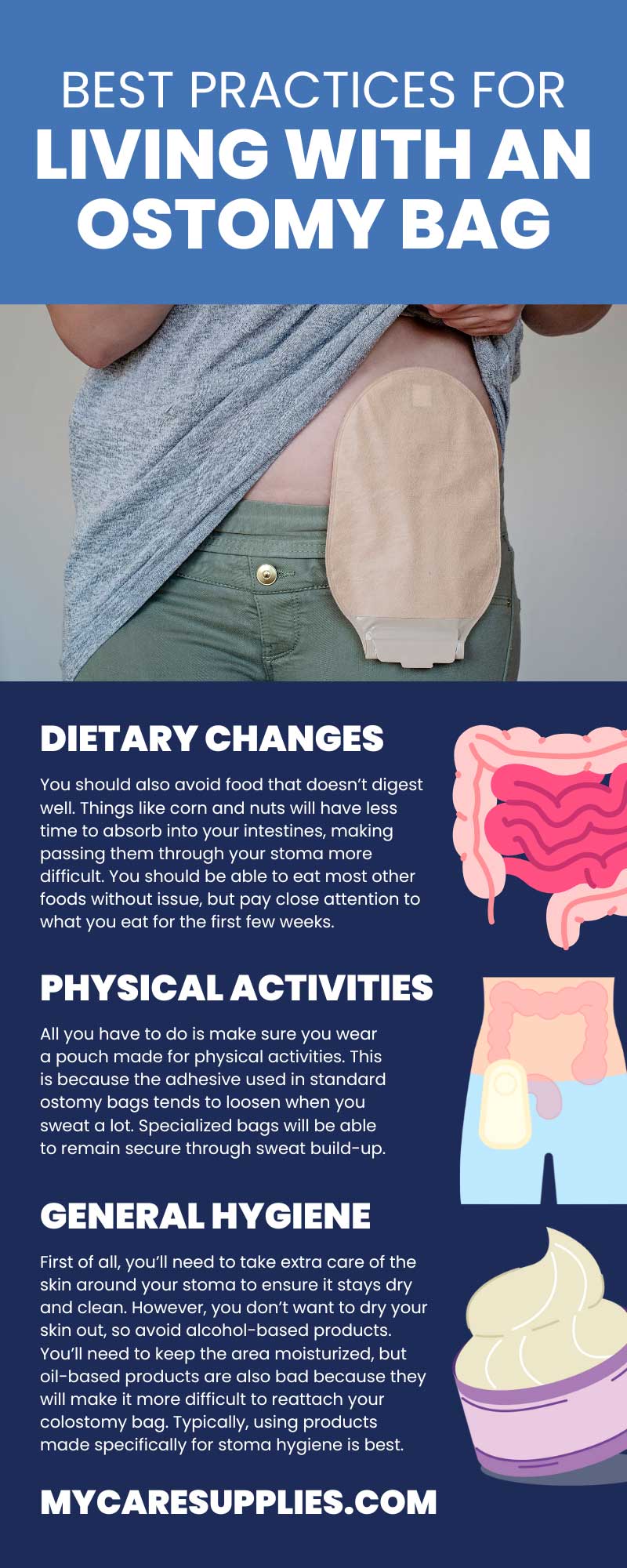Best Practices for Living With an Ostomy Bag
Posted by Jeanne Lowry on Feb 13th 2023

If you just underwent an ostomy surgery or will soon, you probably have many questions running through your head. Most likely, one of the more prominent ones is how your life will change with your stoma.
Whether this procedure is permanent or only temporary, your lifestyle won’t have to change too much. However, you might have to alter the way you do certain activities, depending on what they are. Fortunately for you, you’ve come to the right place to figure out the best practices for living with an ostomy bag for each part of your life. Read on for information and advice to help your transition to living with a stoma go smoothly.
Bathroom Habits
Let’s start with the biggest change: your bathroom habits. Obviously, the way you relieve yourself with a stoma is much different than what you’re used to, but your doctor has likely thoroughly covered that topic for you.
Instead, we want to focus on how often you go to the bathroom. Generally, most people produce stool once or twice a day. With a stoma, this will be much more often. Even though you’ll have a closed-end colostomy bag to collect your stool in, it won’t be able to keep you from needing to go to the bathroom more often.
This is because you can’t let these pouches get too full. The fuller they are, the more likely complications become. You never want your stoma to get backed up or for your bag to become too heavy. Therefore, you’ll need to get into the habit of emptying it when it gets about halfway full. As long as you can keep up with this, you shouldn’t run into any significant issues.
Dietary Changes
Next, let’s look into some potential dietary changes. While you won’t have to stick to soft foods, there are some food items you might want to avoid. For example, foods that make you gassy or mess with your stomach are best to avoid. This is because you won’t be able to control when your stoma empties itself.
You should also avoid food that doesn’t digest well. Things like corn and nuts will have less time to absorb into your intestines, making passing them through your stoma more difficult. You should be able to eat most other foods without issue, but pay close attention to what you eat for the first few weeks.
Physical Activities
A common misconception about having a stoma is that it’ll keep you from doing most physical activities—this is far from the truth. In fact, if you’re careful and don’t overexert yourself, you’ll still be able to do everything you could before the surgery.
All you have to do is make sure you wear a pouch made for physical activities. This is because the adhesive used in standard ostomy bags tends to loosen when you sweat a lot. Specialized bags will be able to remain secure through sweat build-up.
General Hygiene
Of course, if you’re staying physical during this time, you’ll want to make sure you stay clean as well. Most hygiene habits will stay relatively the same, but bathing will have a few changes.
First of all, you’ll need to take extra care of the skin around your stoma to ensure it stays dry and clean. However, you don’t want to dry your skin out, so avoid alcohol-based products. You’ll need to keep the area moisturized, but oil-based products are also bad because they will make it more difficult to reattach your colostomy bag. Typically, using products made specifically for stoma hygiene is best.
Another important thing to note is that hair can make it difficult to securely attach your ostomy pouch. Taking the time to shave around this area every so often will help ensure the bag stays in place throughout the day.
Clothing Choices
Depending on your personal style, you might need to make some changes after an ostomy surgery. For example, if you enjoy wearing tight-fitting clothes, you might want to buy some looser clothing. This is because tight clothing can restrict output into the bag, which you want to avoid.
Additionally, even though ostomy bags are quite discrete, tight shirts and pants will likely show the outline of your pouch. Though merely an aesthetic issue, many people prefer to keep their pouch as discreet as possible. Simply wearing any type of loose-fit clothing should hide your pouch with ease.
Medication Adjustments
Another good practice to keep in mind for living with an ostomy bag is that you might need to make some adjustments if you have other medical conditions. Like with your food, certain medications take more time to absorb into your intestines. That means you might need to switch to a liquid form for certain prescriptions or over-the-counter pills you take. On top of that, some medications might negatively affect your bowel movements.
If you don’t regularly experience these issues, you might be okay to continue with the same medication. However, if these issues arise, you’ll need to talk with your doctor to find a better alternative.
Mental Health Concerns
Everything we’ve discussed so far has concerned what you’ll need to adjust for the activities you already do regularly. Unfortunately, a medical procedure like this can have lasting effects on a person’s mental health. Most commonly, people worry about public embarrassment or ridicule from people they know. This can lead to feelings of worry and anxiety and a sense of isolation.
If you experience or fear you may experience some emotional challenges because of your stoma, you should search for groups of other people who deal with ostomies daily. Plenty of online and in-person groups exist, so they’re not as difficult to find as you might think. Within these groups, you can vent your frustrations or discuss your concerns surrounding your ostomy. People who have gone through the exact things you’ve experienced will be able to give you comforting words or helpful advice.
Then, if you feel you need further help, reach out to your doctor. They will be able to recommend a therapist that can help you process your experience. Just remember that you’re not alone; many people out there are able and ready to help you through any tough times that come your way.


